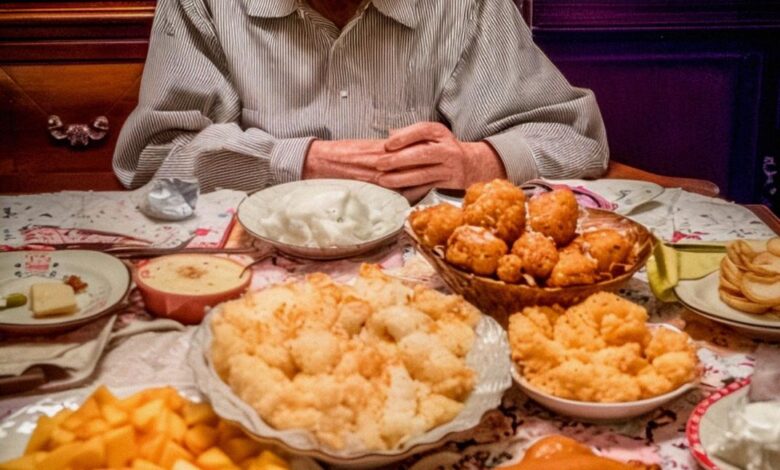
My name is Caleb, I’m 31, and this story has haunted me for years. I’m sharing it because maybe, just maybe, someone reading this is making the same mistake I made—and can change before it’s too late.
When I was seven, tragedy struck. My parents died in a car accident, leaving me with only faint memories of them: the faint scent of my mother’s perfume and the sound of my father’s booming laugh as he tinkered with old cars in the garage. After that, my whole world became my grandfather, Arthur. He raised me with rough edges and old-fashioned discipline, but also with a love so steady it anchored me through my grief.
He was the kind of man who started his mornings with bitter black coffee on the porch and ended his evenings with stories that stitched our family history together. He taught me to fish in the creek, plant tomatoes in the garden, and respect hard work. In every sense, he became my hero.
But when I turned 17, things shifted. I started noticing how different our life was from my friends’. Their parents were younger, their houses newer, their cars shiny and modern. My grandfather’s truck rattled, his house smelled of old wood, and his values felt out of step with the world I wanted to join. Embarrassment crept in. Soon, I didn’t invite friends over, and when Grandpa picked me up from school, I asked him to stop a block away.
When I left for college, I told myself it was natural to grow apart. But the truth is, I was running from him—from the simple life he represented, from the reminder that my roots weren’t as glossy as the ones I was trying to plant for myself. That’s when the excuses started.
Every June 6, without fail, my phone rang. “Caleb, son, it’s your old grandpa,” his warm but weathered voice would say. “Made your favorite pot roast. Come by for my birthday dinner.”
And every year, I said no. Finals, work deadlines, a girlfriend’s party—there was always something more important. I sent quick texts to soften the blow: Sorry, Grandpa. Busy this weekend. Maybe next year.
Eleven years. Eleven birthdays. Eleven missed dinners with the man who raised me.
Through those years, I built what I thought was a successful life. A college degree, a job in the city, relationships that never stuck. But every June, when Grandpa’s call came, a rock of guilt settled in my stomach. His voice grew weaker each year, his messages a little more tinged with loneliness. Still, I ignored it.
Then, one June, the call never came. At first, I felt relief—no excuse needed. But that relief curdled into dread. What if something was wrong? Weeks passed. The silence grew heavier. Finally, I packed a bag, got in my car, and drove the two hours back to his town.
As I turned onto the familiar dusty road, I expected to see his house, the porch where he sat with coffee, the rocking chair where he told me stories. Instead, my chest tightened at the sight before me: smoke-stained walls, shattered windows, part of the roof caved in. His home—my childhood home—was in ruins.
I stumbled out of the car, calling his name. No answer. The porch steps were half-collapsed, the air heavy with the smell of ash. Panic clawed at me until a hand touched my shoulder. It was Mrs. Harlow, the neighbor.
“Easy, son,” she said softly. “Arthur’s alive. But you didn’t know about the fire, did you?”
I shook my head. She explained there had been an electrical fire three months earlier. Grandpa barely made it out, suffering burns and smoke inhalation. He’d been in the hospital ever since.
“The hospital tried to reach you,” she added gently. “You were listed as his emergency contact. They called and called.”
Those unknown numbers I’d been ignoring—spam, I thought—they had been the hospital, trying to tell me the man who raised me was fighting for his life.
Shame hit me like a fist.
Before taking me to see him, Mrs. Harlow pulled a small wooden box from the wreckage. It was Grandpa’s memory box, filled with old photos—my parents smiling, me grinning as a child with missing teeth, snapshots of fishing trips and summer gardens. And at the bottom, a stack of birthday cards. My cards. The generic ones I’d sent when I couldn’t bother to visit. He had kept every single one.
At the hospital, I found him frail in bed, thinner than I’d ever seen, but when his eyes met mine, they lit up. “Caleb,” he whispered, “you came.”
I broke down, apologizing through tears. He reached for my hand, his grip weak but steady. “You’re here now. That’s all that matters.”
For the next week, I stayed by his side, listening to his stories, hearing more about my parents than I ever had. He showed me journals he’d kept, recording our family history, determined that I wouldn’t lose it.
Now, Grandpa lives in a small apartment near the hospital. I visit every weekend. Every June 6, I’m at his side for his birthday, eating pot roast the way I should have all along.
Here’s what I’ve learned: People don’t live forever. Their stories, their love, their presence—those things are fragile. I almost let guilt and pride steal them from me.
If you’re putting off visiting someone who loves you, thinking there will always be time, let me be your warning. Time runs out. Don’t wait until the call stops coming.